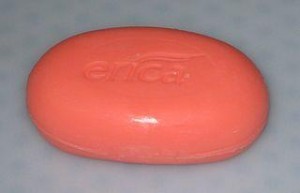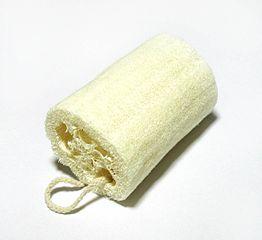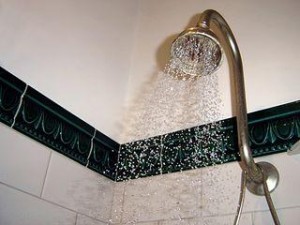10 Eczema Bathing Tips To Reduce Itching
Eczema is an skin condition marked by dry skin rashes which are often itchy. The itching can fluctuate during the course of the day and vary in intensity in each case. Itching is one of the more unpleasant symptoms that proves frustrating to patients. Attempting to scratch the itchy area may in fact worsen the eczema overall and even lead to complications such as secondary bacterial infections. Constant itching can also disturb sleep, affect the ability to concentrate on daily activities and lead to irritability and even depression.
Most palliative treatment options for eczema are aimed at reducing skin itching. But it is not just about using oral and topical medication to ease the itching and reduce skin dryness. There are a number of different conservative measures to relieve eczema and live with the condition. It may not resolve eczema but it can make the condition more tolerable. Sometimes the simplest of measures can prove to be effective not only in easing the symptoms of eczema but even in preventing it.
Bathing seems to trigger itching of the skin or worsen it in most cases of eczema. Here are some helpful bath time tips to minimize it. Apart from eczema, there are a number of other causes of itchy skin. Some of the measures discussed below can be helpful for itching of the skin even without eczema.
Use Lukewarm Bathing Water
The heat of your bath water can play a role in the severity of the post-bathing itchiness. Lukewarm water is generally better tolerated. Remember that eczema has an inflammatory component to it – this means that inflammation of the skin is part of the reason why you feel itching. Heat may exacerbate the inflammation, therefore you should avoid having a bath in hot water. Cold water could be helpful but it is uncomfortable to bathe in. Although each person’s idea of lukewarm may differ, you should try to keep the water below normal body temperature (98.6F/37C) and around the 77 to 86F (25 to 30C) mark.
Try and Test Different Soaps
Soaps with a strong fragrance or antibacterial agents should be avoided if you have eczema. These soaps dry the skin excessively and can irritate the skin. Rather opt for mild soaps, that have little or no fragrance. But sometimes even the mildest of commercial soaps can be a problem. You should try and test different brands of soaps to find one that minimizes itching after bathing. Speak to your dermatologist and pharmacist about medicated soaps that have been clinically tested to reduce itching in eczema patients. If this is not an option, then look at hypoallergenic baby soap – it is easily available and affordable but can be very effective in minimizing itching.
Lather With Cream Not Soap
One of the common tips advised for babies with eczema, but not as frequently adopted for older children and adults, is the use of fragrance-free hypoallergenic creams to lather during bath time. Certain brands of aqueous cream may be the ideal option, and it is relatively inexpensive. You can apply the cream thick without rubbing it into the skin prior to getting into a bathtub or shower and then just washing off the cream. Alternatively you can use the cream in the same way as you would use soap while bathing. Aqueous cream has a lipid (fat/oil) base which prevents the water and soap from drying the skin.
Avoid Shampoo and Conditioner
Shampoo and conditioner are often seen as necessities for hair care but you can do without it. These products do not only make contact with your hair and scalp. It can also drip onto other parts of your body while bathing and rinsing. Most of these products have strong chemicals that may be otherwise harmless but when you suffer with eczema it can be a major problem. Even if you try to be careful, some of the shampoo or conditioner may make contact with your skin. The problem may not always be obvious but if you suffer with eczema then it is best to avoid using shampoo or conditioner and instead wash your hair with regular soap that you apply on your body.
Gentle Rubbing Not Scrubbing
It is important to avoid using a rough sponge, loofah (luffa) or any other type of abrasive for scrubbing the skin when bathing. Pumice stones and cosmetic exfoliants with granules are the worst for eczema. It not only strips the skin of its natural oils and causes excessive drying of the skin but it may also injure the eczematous areas of the skin. Some eczema sufferers scrub hard when bathing to relieve the skin itching but this only worsens the condition. Hard scrubbing of the skin does not necessarily mean that you are having a ‘cleaner’ bath. Gentle rubbing with a soap that is well tolerated or even using a soft face towel may be a better option when bathing.
Dry Thoroughly After Bathing
Water is an irritant on the skin if it is left to dry without wiping thoroughly. Even if you do not have eczema, you may find that skin itches if you do not dry yourself properly after swimming or bathing. For eczema patients it can be much worse. Use an absorbent towel to dry yourself thoroughly and even several towels if necessary. Make sure that you wipe thoroughly in the skin folds where water may be trapped. Sometimes it may be necessary to use hair dryer on a low heat setting to dry parts of the skin, especially on the eczema rash where water may be retained even after wiping thoroughly with a towel.
Moisturize Properly After Bathing
Bathing dries the skin and it can take a period of time before your skin is able to self-moisturize by secreting natural skin oils. Skin dryness worsens itching and this is further exacerbated with the irritation caused by water, soap and scrubbing. A better way to minimize the impact of dry skin is to moisturize immediately after drying yourself thoroughly following a bath. But it is also dependent on using the right moisturizer. Applications that are lipid-based are usually a better option. It moisturizes the skin while acting as a barrier against the environment. It also protects the skin if you scratch unconsciously or while sleeping.
Take Fewer Shorter Showers
Bathing less often may be better if you suffer with eczema. Water and soap are irritants and you should therefore minimize your exposure to it. But there is no reason to not bathe at all. Proper hygiene is still important and you could rather opt for fewer and shorter baths. Taking a short shower may be better than soaking in a bath tub. The soapy water within a bath tub means that your skin is exposed to these irritants for longer periods of time when you soak. When you shower, the water is running and soap is quickly washed off. If you do soak in a bath though, then make sure that you rinse off with thoroughly water afterwards to remove all traces of soap from the skin.
Change The Time of Daily Bathing
If you find that your skin rash itches more at a certain time in the day, then it is best not bathe around that time. The reason why symptoms of certain conditions worsens at different times in the day is not always know. Many eczema sufferers find that their skin condition becomes more itchy at night. Others may find the daytime to be a problem. And in some instances there may be no correlation between the time of the day and the time when the itching peaks. However, it is advisable to keep a record of changes in your symptoms so that you can analyze it at a later date and identify when it is a good time to bathe, or not.
Wear Light Clothing Afterwards
Bathing in hot or even lukewarm water causes the superficial blood vessels of the skin to dilate. This causes your body to give off more heat through the skin surface. Wearing thick and heavy clothing after bathing may retain the heat and cause you to perspire. Many eczema patients find that heat sometimes aggravates itching. Perspiration that does not evaporate quickly from the skin can also act as an irritant. This may therefore worsen itching after bathing. If the environmental temperature is not too low, it may be advisable to wear light clothing made of natural textiles immediately after bathing. Wool should be avoided as it also tends to irritate the skin in many eczema patients.








